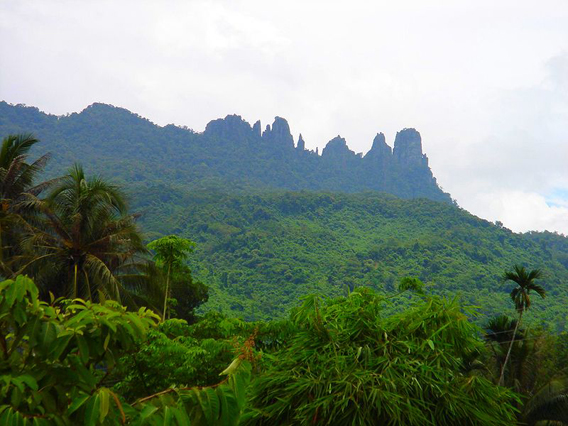
Baoting Li and Miao Autonomous County, Hainan Island, China. Photo by: Anna Frodesiak.
An award-winning forest activist, Liu Futang, is facing trial in China for printing books without the proper licenses, even though he says he gave most of the self-published books away for free. In April, Futang won Best Citizen Journalist in China’s Environmental Press Awards for covering deforestation Hainan province on his blog. Seven months later and the 63-year-old, who suffers from diabetes, could face five years in prison.
Through his blog and books, Futang shone a light on the destruction of Hainan’s coastal forests for hotels, apartments, and golf courses since the 1990s to create a new tourist mecca. More recently he wrote a book devoted to plans to build a coal plant against the community of Yinggehai’s wishes, entitled The Tears of Hainan II. Experts believe that the arrest was in retaliation for Futang’s criticism of powerful players in the region.
“Liu’s only crime is trying to tell as many people as possible about what he has learned from his research. His trial is an attempt to deter all citizen-journalists and get them to censor themselves,” a statement from the NGO, Reporters without Borders, reads.
But the government says Futang was arrested for running an “illegal business,” including printing 18,000 books. While most were given away free, the government says Futang’s daughter sold 14 online.
Futang was arrested while being treated for diabetes and high-blood pressure in Haikou Hospital. Funtang’s son has said that his father attempted suicide after being arrested.
Related articles
Massive economic growth does little for happiness in China
(05/29/2012) Economic growth alone may not raise happiness, according to a recent study in the Proceedings of the National Academy Science (PNAS). Despite a stunning economic growth rate of around 10 percent per year over the last two decades, China’s people have not seem a big boost in their overall life satisfaction.
Corruption still plundering forests in Laos for furniture
(09/26/2012) The forests of Lao are still suffering from widespread destruction with the government turning a blind eye to a thriving black market logging trade on the border of Laos and Vietnam, according to an update report by the Environmental Investigation Agency (EIA). Last year, the EIA found that powerful players, including the Vietnamese military, were plundering Laos of its forests for raw logs. Smuggled from Laos into Vietnam, the raw logs are crafted into furniture, which are eventually exported to Europe and the U.S. Now, over a year later a new report finds little has changed.
Yuppies are killing rhinos, tigers, elephants
(09/07/2012) Yuppies, not elderly rural consumer, are driving the trade that is decimating some of the world’s most iconic endangered species, including tigers, elephants, rhinos, pangolins, and bears, said experts meeting at a workshop in Vietnam.
Picture of the day: Yao Ming with baby elephant orphaned by ivory trade
(08/27/2012) Former NBA Basketball player and Olympian, Yao Ming is taking his first trip through Africa in order to see the on-the-ground impacts of the black-market ivory and rhino trades in East Asia. Ming, who stands 7-and-a-half feet (2.3 meters), has become not only well-known for his athletic prowess, but also his devotion to endangered wildlife.
First pictures of newly discovered monkey in China published
(07/27/2012) Researchers have published the first evidence that a recently discovered monkey ranges into China, releasing pictures of the Rhinopithecus strykeri snub-nosed monkey in its natural habitat in Yunnan province. The photos are published in the current issue of the American Journal of Primatology.
Protest in China leads to cancellation of copper smelter
(07/06/2012) A massive protest triggered cancellation of a controversial copper smelter local communities feared would lead to air pollution, reports The New York Times. Outcry also led to the release of jailed protesters who demonstrated against the project.